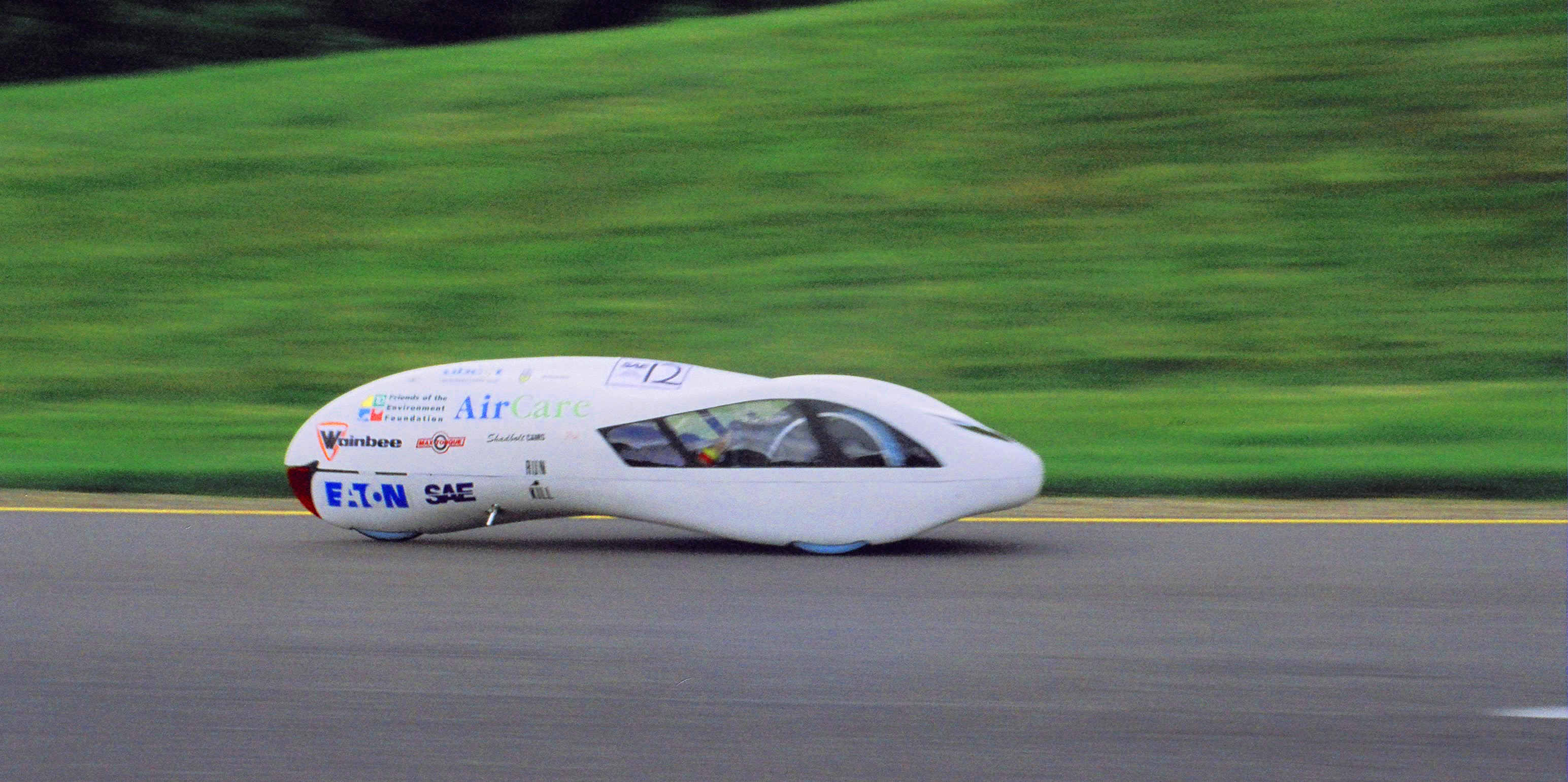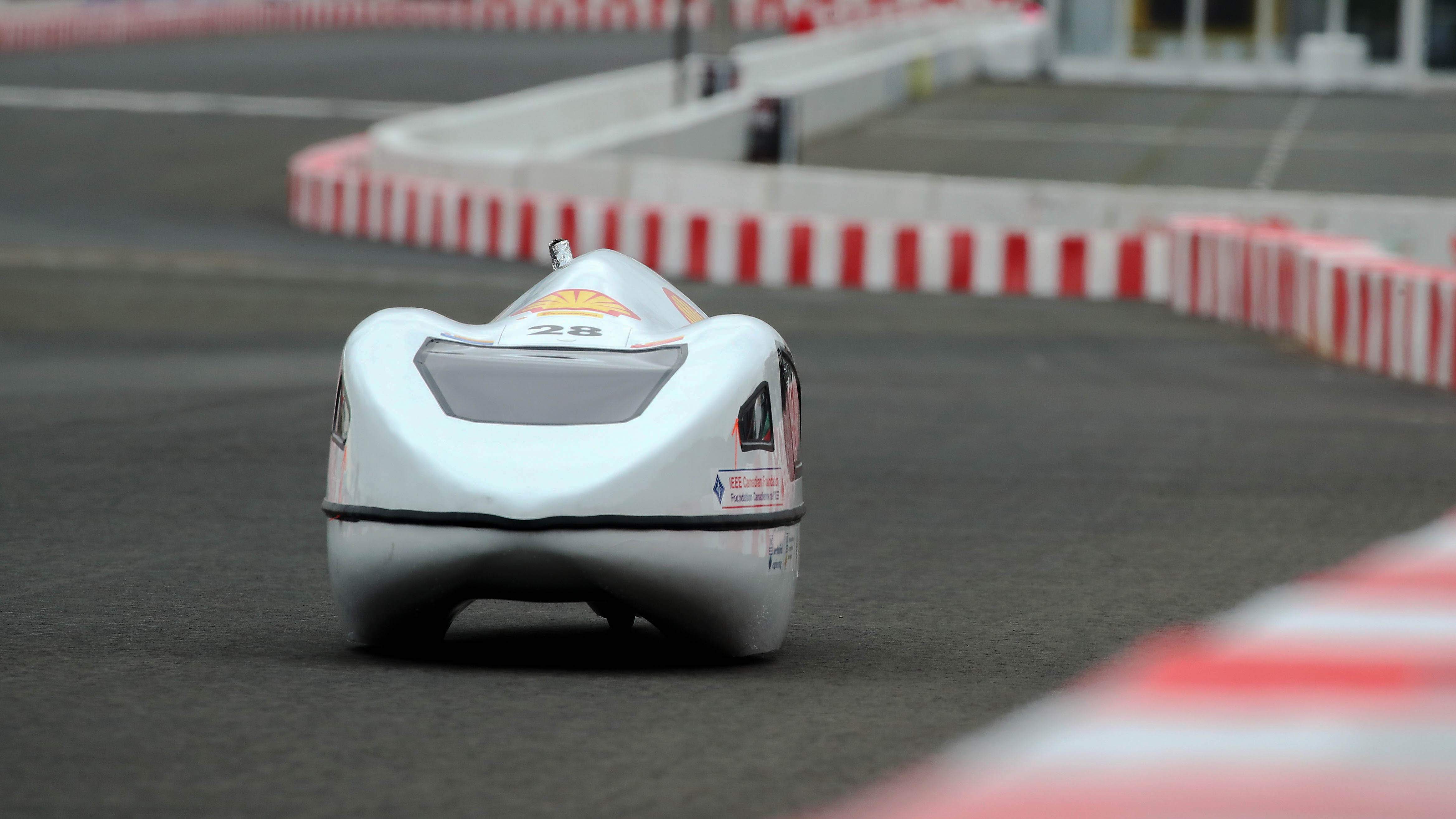How far can you go on a litre of gasoline? After 43 years, the SAE Supermileage Competition came to a close in June 2022. To hear the end of a program that shaped much of my undergraduate experience left me reminiscing—of late nights hacking together prototype vehicles with fellow students all enchanted by the madness of collegiate engineering competitions. I was supposed to compete in 2020 as team captain of the UBC Supermileage team, but lost the opportunity due to the pandemic. Now, a year after the last SAE Supermileage Competition, I wanted to dive in and share a brief and incomplete look at some of the stuff that made SAE Supermileage what it was.

About SAE Supermileage
Perhaps a good starting point is the description of the competition provided by the organizers [1]:
SAE Supermileage is an engineering design competition for undergraduate and graduate students. The program provides participants with the opportunity to enhance their engineering design and project management skills by applying learned classroom theories in a challenging competition. The engineering design goal for SAE Supermileage is to develop and construct a single-person, fuel-efficient vehicle that complies with the competition rules. The vehicles will run a specified course to obtain the highest combined kilometers per liter (miles per gallon) rating; students will be exposed to a design segment consisting of a written report and verbal presentation. Students have the opportunity to set a world fuel economy record and increase public awareness of fuel economy.
You can also read an archived version of their history blurb [2].
Which teams defined SAE?
The SAE Supermileage competition website hosted competition results going back to the year 2000. Unfortunately, they didn’t have results going further back than that. I went through the effort to compile a list of the best teams, ranked by their placement over the years. This list uses olympic medal counting, where we sort by the number of first places, tie broken by second places, and so on.
| Team | 1st | 2nd | 3rd | 4th | 5th |
|---|---|---|---|---|---|
| Université Laval | 8 | 1 | 1 | 1 | 1 |
| University of British Columbia | 4 | 2 | 1 | 1 | 0 |
| Penn State University Behrend College | 4 | 2 | 0 | 0 | 3 |
| University of California Berkeley | 1 | 1 | 2 | 0 | 0 |
| Rose-Hulman Institute of Technology | 1 | 1 | 1 | 2 | 0 |
| Cedarville College | 1 | 1 | 0 | 1 | 0 |
| Université de Sherbrooke | 1 | 1 | 0 | 0 | 0 |
| California State University Chico | 1 | 0 | 0 | 0 | 2 |
By the numbers:
- The competition since 2000 saw 8 unique winners across 21 years of on track competition (2020 and 2021 transitioned to virtual competitions in light of the COVID pandemic).
- However, the field was very top heavy, with three universities (Laval, UBC, Penn State) accounting for 16 of the 21 competition victories.
- The other 5 teams each won once.
- Laval takes the undisputed crown of the SAE Supermileage competition, achieving medals in 10 separate competitions, alongside a staggering 8 first place finishes.
The SAE Supermileage Record (2000-2022)
From 2000-2022, the Eaton Proving Grounds record was set a total of 8 times by 5 different schools. Laval held the record from 2008 until the conclusion of the competition, surpassing their own record in 2016, and again in 2017.
2000: 1131 mpg by St. Thomas Academy
2003: 1343 mpg by Homestead High School
2004: 1747 mpg by University of British Columbia
2005: 1836 mpg by Mater Dei High School
2006: 3145 mpg by University of British Columbia
2008: 3169 mpg by Université Laval
2016: 3788 mpg by Université Laval
2017: 4113 mpg by Université Laval
The Complete List of Collegiate Teams
In terms of the rest of the field, there’s a few schools that stand out in the history of fuelathons. Some programs continue to persist to this day, while others seem to have passed into relative obscurity.
| Team | 1st | 2nd | 3rd | 4th | 5th |
|---|---|---|---|---|---|
| Brigham Young University | 0 | 3 | 1 | 0 | 0 |
| Northern Illinois University | 0 | 1 | 7 | 1 | 0 |
| École de Technologie Supérieure | 0 | 1 | 2 | 0 | 4 |
| Michigan Technological University | 0 | 1 | 1 | 1 | 1 |
| California State University LA | 0 | 1 | 1 | 0 | 0 |
| Toronto Metropolitan University* | 0 | 1 | 0 | 1 | 0 |
| Université du Québec ETS | 0 | 1 | 0 | 1 | 0 |
| LeTourneau University | 0 | 1 | 0 | 0 | 1 |
| University of Ottawa | 0 | 1 | 0 | 0 | 1 |
| Dalhousie University | 0 | 1 | 0 | 0 | 0 |
| Ivy Tech State College | 0 | 0 | 2 | 3 | 0 |
| University of Massachusetts Amherst | 0 | 0 | 2 | 0 | 2 |
| Milwaukee School of Engineering | 0 | 0 | 0 | 2 | 1 |
| University of Illinois Urbana Champaign | 0 | 0 | 0 | 2 | 0 |
| University of Windsor | 0 | 0 | 0 | 1 | 1 |
| Université de Québec à Trois-Rivières | 0 | 0 | 0 | 1 | 0 |
| Southern Polytech | 0 | 0 | 0 | 1 | 0 |
| Binghamton University | 0 | 0 | 0 | 1 | 0 |
| University of Akron | 0 | 0 | 0 | 0 | 2 |
| University of Toronto | 0 | 0 | 0 | 0 | 1 |
| Brigham Young University - Idaho | 0 | 0 | 0 | 0 | 1 |
By the numbers:
- Northern Illinois University is the most successful team in terms of medal placements (8) after Laval, but have never won the competition.
- 10 unique teams have taken second as their highest placement (and 17 unique teams have placed second in total).
- 2 unique teams have taken third as their highest placement (and 11 unique teams have placed third in total).
The Once Great High School Division
The SAE Supermileage competition used to hold both collegiate and high school divisions (or allowed both divisions to compete in the same category). This persisted until 2009, where the high school division was removed completely. There are some legendary high schools whose attempts at fuel efficiency were often better than the collegiate level. Below lists all the high school teams that would have placed in the top 5 of a combined divisions leaderboard1.
| Team | 1st | 2nd | 3rd | 4th | 5th |
|---|---|---|---|---|---|
| Evansville Mater Dei High School | 2 | 2 | 1 | 0 | 0 |
| Homestead High School | 2 | 1 | 0 | 0 | 0 |
| St. Thomas Academy | 1 | 0 | 0 | 0 | 0 |
| Chisago Lake High School | 1 | 0 | 0 | 0 | 0 |
| Ithaca Public School | 0 | 1 | 0 | 0 | 0 |
| Winamac High School | 0 | 0 | 2 | 1 | 0 |
| Moundsview/Chippewa High School | 0 | 0 | 1 | 0 | 1 |
Interesting Facts:
- Even though the high school division was removed in 2010, Mater Dei would find itself in the top 4 most successful teams based on their first place finishes.
- Three of the five competition records were held by high school teams (St. Thomas Academy, Mater Dei, and Homestead).
The Future of Fuelathons
While the SAE Supermileage competition is no more, some teams have taken it upon themselves to carry on the tradition of the enduring technical challenge. Alérion Supermileage, aka Université Laval, hosted the Québec City Supermileage Competition this past June, running with guidelines similar to the Shell Eco-Marathon ruleset. I hope they can continue to carry the torch for independent fuelathons, spreading the opportunity to learn and design to another class of engineers. Efficiency and optimisation are topics that span so many fields, and though gasoline may not be the future, the lessons we learned will endure for all of those that this competition touched.
If you’re interested in looking at the data, you can find the source for everything here, originally taken from [3].

The collegiate results exclude all high school team results. ↩︎